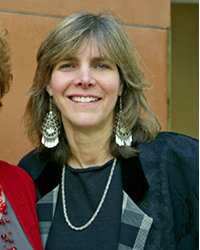New Breast Cancer Results Illustrate Promise and Potential of I-SPY 2 Trial
 UCSF News reports on new results showing the promise and potential of I-SPY 2 Trial, personalized medicine study designed to identify breast cancer patients most likely to benefit from an array experimental drugs.
UCSF News reports on new results showing the promise and potential of I-SPY 2 Trial, personalized medicine study designed to identify breast cancer patients most likely to benefit from an array experimental drugs.
In an innovative clinical trial led by UC San Francisco, the experimental drug neratinib along with standard chemotherapy was found to be a beneficial treatment for some women with newly diagnosed, high-risk breast cancer.
Additionally, researchers learned that an algorithm used in the adaptive, randomized trial known as I-SPY 2 was highly effective at predicting the success of the treatment regimen in the patients who have HER2-positive/HR-negative disease.
The finding marks the second drug “graduation” within the I-SPY 2 trial model, which is designed to accelerate drug development and to reduce the costs of bringing safe and effective new drugs to market.
The phase 2 data was presented in San Diego at the annual meeting of the American Association for Cancer Research (AACR), a premier gathering of scientists presenting cutting edge cancer research.
Launched by UCSF in tandem with a private-public partnership, I-SPY 2 combines personalized medicine with a novel investigational design. Its goals are to improve the efficiency of clinical trials and to streamline the process for developing new drugs and regimens where they are most urgently needed.
“What is so exciting about the graduations is that we’re proving unconditionally that the standing trial mechanism can efficiently evaluate multiple drugs and identify the specific populations for which the agents are most effective,” saidLaura Esserman, MD, MBA, professor of surgery and director of the Carol Franc Buck Breast Care Center at the UCSF Helen Diller Family Comprehensive Cancer Center.
Esserman is the co-principal investigator of I-SPY 2, which is underway at 20 cancer research centers in the United States and Canada.
